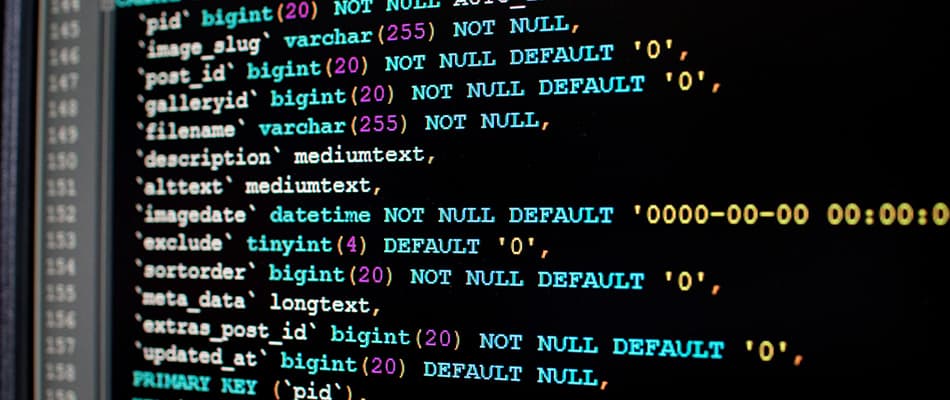Ethical Hacker Salary in South Africa- An Overview of the Payroll!
Ethical hackers, also known as white-hat hackers, play an important role in protecting organisations from cyber threats. They use their skills to identify vulnerabilities in systems and networks, ensuring that sensitive information remains secure. As cybercrime continues to rise, the demand for ethical hackers in South Africa has grown significantly.
This profession offers a rewarding career path and the opportunity to make a positive impact on cyber security. According to Payscale, a certified ethical hacker’s salary in South Africa is around R350,000 per year as of October 2024. As companies increasingly recognise the importance of cyber security, ethical hackers can expect competitive compensation for their expertise.
Read the article to learn more about an ethical hacker’s salary in South Africa, how to get into ethical hacking and more.
Average Ethical Hacker Salary in South Africa
According to Payscale, an ethical hacker’s salary in South Africa is around R350,000 per year as of October 2024. However, the average salary can vary depending on location and the type of company. For example, positions in major cities like Johannesburg and Cape Town often offer higher salaries due to a greater demand for cyber security talent.
Additionally, larger companies or those in the finance and technology sectors provide better compensation than smaller firms. Factors like company reputation and the complexity of the security challenges can also influence pay. Ethical hackers in urban centres and established organisations are likely to earn more than those in smaller towns or startups.
Also Read About Cyber Security Specialist Salary in South Africa
Per Month Ethical Hacker Salary in South Africa
The monthly salary of an ethical hacker in South Africa varies based on experience and skills. Those with specialised knowledge, like advanced penetration testing or cryptography, usually earn more. Ethical hackers who have certifications are also more valued by employers, which can lead to higher pay. In general, a hacker’s experience and technical skills are important factors that determine their monthly income in the country. The demand for ethical hackers continues to grow as businesses face increasing cyber security threats. As a result, professionals in this field can expect competitive salaries that reflect their expertise and the critical role they play in protecting sensitive information.
How to Become an Ethical Hacker in South Africa?
As cybercrime increases, organisations require skilled professionals to identify and fix system vulnerabilities to ensure data security. With the right training and knowledge, anyone can enter this field. Let us know a few steps that will help you to become an ethical hacker below:
- Get Hands-on with Linux/Unix: In South Africa, familiarising yourself with Linux is essential for ethical hacking. Kali Linux is a preferred choice due to its extensive tools for penetration testing. You can easily find resources and community support online.
- Learn the Fundamentals of Programming: Start with C, as it forms the backbone of Unix/Linux systems. Learn languages like Python (for writing exploits), JavaScript (for web hacking), PHP (for web security), and SQL (for database hacking). Many online courses are available in South Africa to help you learn these languages at your own pace.
- Understand Networking Concepts: A solid understanding of networking is very important. Focus on TCP/IP, subnetting, and common protocols. Tools like Nmap and Wireshark can be particularly useful for learning. Consider joining local workshops or webinars in South Africa to upskill your understanding of these concepts.
- Explore the Dark Web: Understanding the dark web is essential for ethical hacking. Use the Tor browser to access it and learn about its legitimate and illicit aspects. South African communities may offer discussions on ethical practices in this realm.
- Upskill Your Hacking Knowledge: Once you have a foundational understanding, explore topics like SQL injection, penetration testing, and vulnerability assessments. Stay updated with the latest cyber security trends through online platforms and South African cyber security news.
- Network with Other Ethical Hackers: Join forums, online communities, or local meetups to connect with other ethical hackers in South Africa. Platforms like Meetup, Discord, and Telegram can be great places to find discussions, share knowledge, and collaborate on projects.
Read our article to know about the 7 Cyber Security Layers
Skills Required to Become an Ethical Hacker in South Africa
To become a successful ethical hacker in South Africa, specific skills are essential. These skills help professionals effectively identify and address security vulnerabilities. Individuals can gain these skills by enroling in a cyber security course from Digital Regenesys. Let us look at some of the key skills that aspiring ethical hackers should develop to thrive in this field below.
- Effective Communication: Effective communication is essential for ethical hackers, especially when explaining technical concepts to non-IT professionals. In a diverse work environment, clear reporting and collaboration with various teams are essential for ensuring security measures are understood and implemented.
- Strong Networking Knowledge: A solid understanding of computer networking is crucial in South Africa, where organisations increasingly rely on interconnected systems. Knowledge of internet protocols, servers, and network security helps ethical hackers identify and mitigate unauthorised intrusions quickly.
- Proficiency in Operating Systems: Certain operating systems, particularly Linux, are essential for ethical hackers in South Africa. Familiarity with platforms like Windows and Mac, alongside advanced systems, enables hackers to detect vulnerabilities effectively across diverse environments.
- Advanced Troubleshooting Skills: Strong troubleshooting skills are necessary for addressing security breaches and developing effective countermeasures. Ethical hackers must be able to devise rapid responses to incidents, ensuring that systems are secured and any damage is contained.
- Hardware Knowledge: An in-depth understanding of computer hardware is critical, as ethical hackers need to know how different components work together. This knowledge allows them to assess and repair compromised systems effectively, safeguarding sensitive information.
- Basic Computer Skills: Proficiency in basic computer skills is essential, as ethical hackers perform various administrative tasks, including documentation and data management. Being adept at creating presentations and spreadsheets is important for reporting findings to stakeholders.
- Programming Language Proficiency: Knowledge of programming languages such as Python, Java, and C++ is crucial for ethical hackers to write and analyse code effectively. Mastering at least one high-level language enhances versatility and improves the ability to develop security solutions.
- Database Management Expertise: A thorough understanding of database management systems is essential for securing sensitive organisational data. Ethical hackers must know how to protect against SQL injections and other database vulnerabilities to maintain data integrity.
- Cryptography Knowledge: Proficiency in cryptography is vital for ensuring secure communications within organisations. Ethical hackers use encryption techniques to protect sensitive information from interception, which is particularly important in a data-sensitive environment like South Africa.
- Understanding of Wireless Networks: With the prevalence of wireless networks, ethical hackers must be familiar with wireless protocols and their security measures. This knowledge helps them identify vulnerabilities in Wi-Fi networks, which are common targets for unauthorised access.
In conclusion, ethical hackers play an important role in safeguarding organisations from cyber threats in South Africa. Aspiring ethical hackers should focus on developing key skills like programming, networking, and cryptography to excel in this field. For those looking to improve their expertise, the Digital Regenesys Cyber Security course offers training covering essential topics and practical skills needed for success in ethical hacking. This course provides a solid foundation to help individuals launch their careers in cyber security and make a meaningful impact in protecting sensitive information.
FAQs on Ethical Hacker Salary in South Africa
How does location affect an ethical hacker’s salary in South Africa?
Salaries are generally higher in major cities like Johannesburg and Cape Town due to greater demand.
What factors influence an ethical hacker’s pay?
Company size, industry type, and the complexity of security challenges all impact salary levels.
What skills are essential for becoming an ethical hacker?
The skills essential for becoming an ethical hacker include programming, networking knowledge, and effective communication.
Are certifications important for ethical hackers?
Yes, certifications can improve job prospects and lead to higher salaries.
What is an ethical hacker’s salary in South Africa
An ethical hacker’s salary in South Africa is around R350,000 per year.
What programming languages should I learn for ethical hacking?
Important languages include Python, Java, and C++.
Recommended Posts













